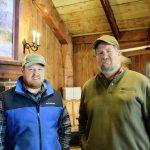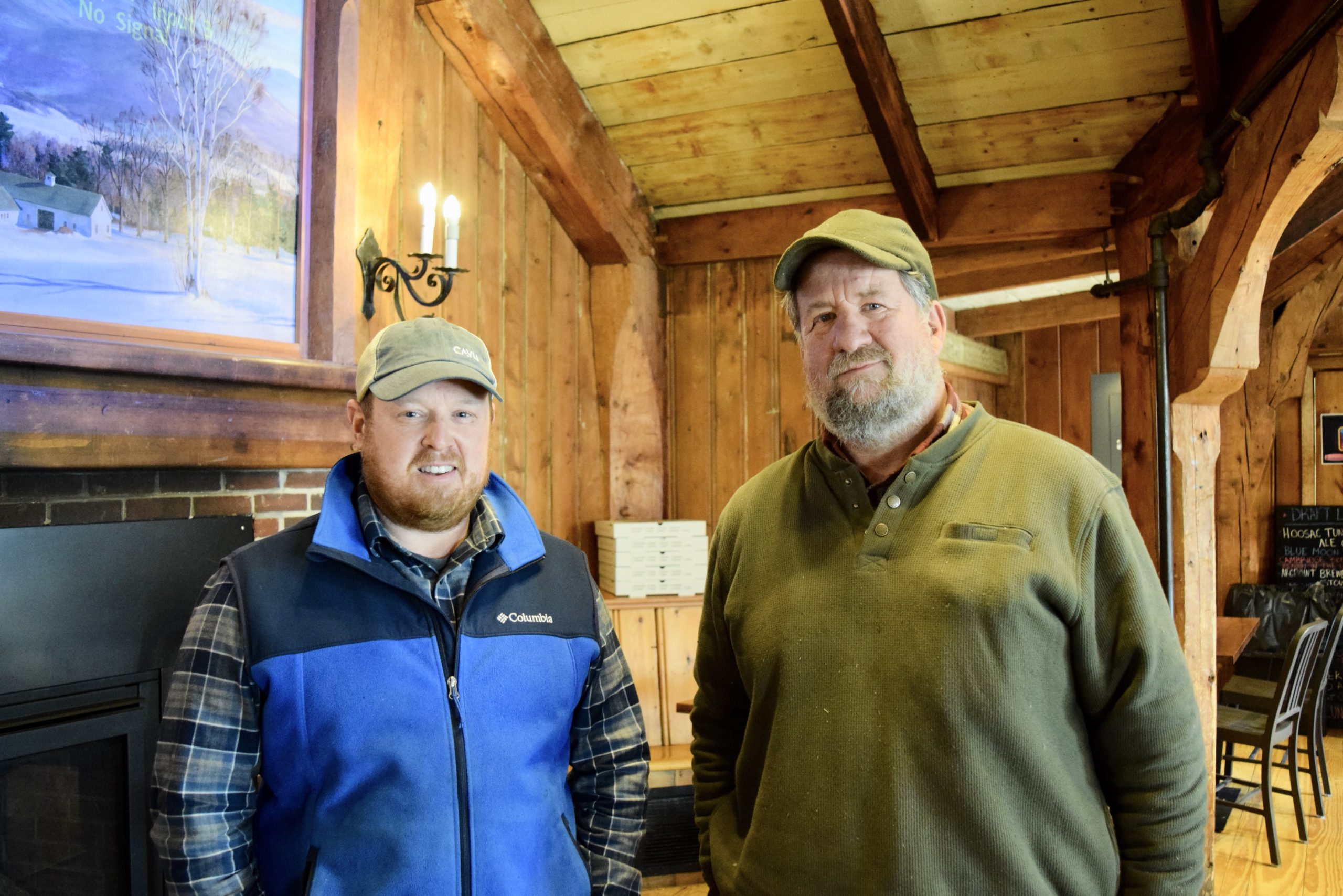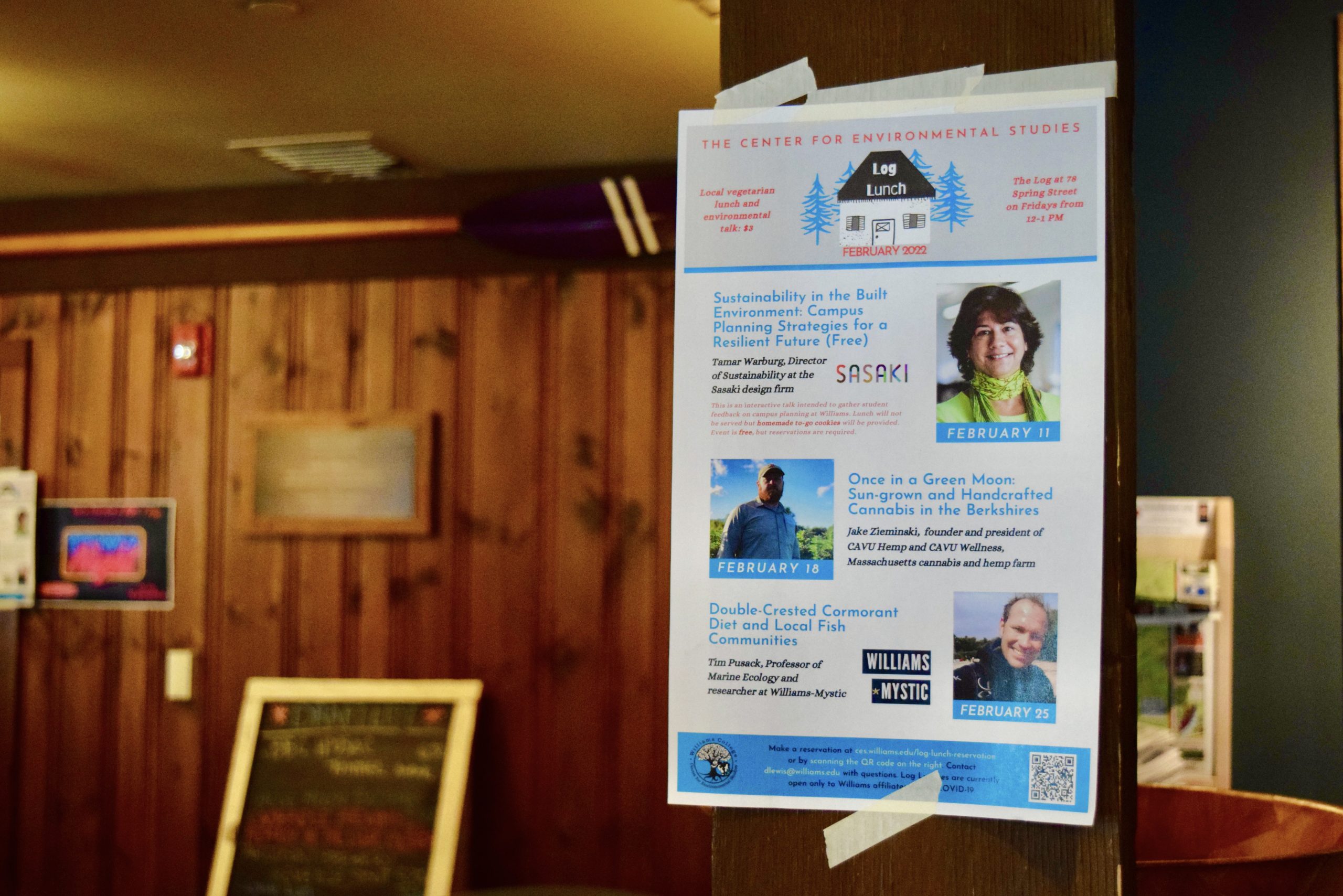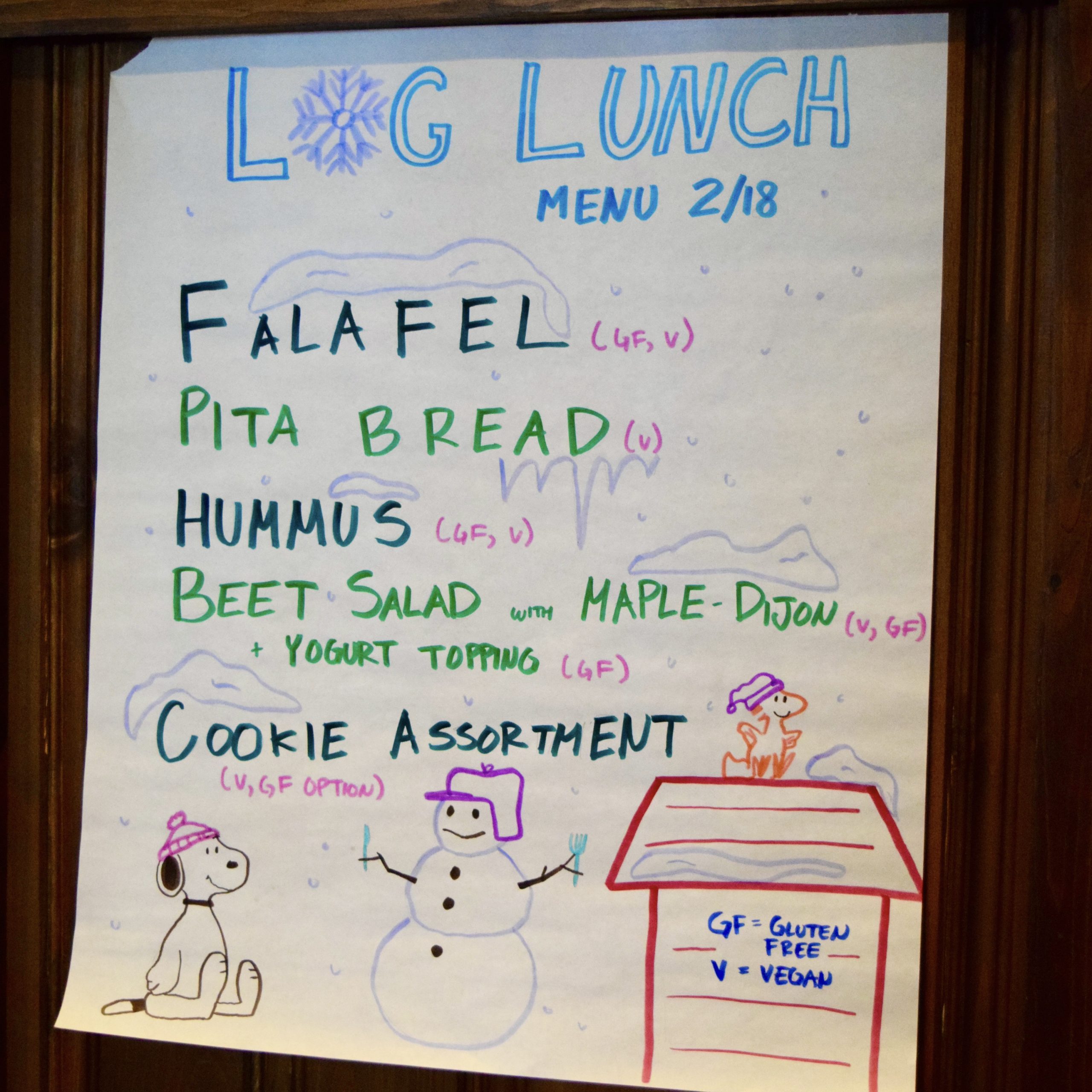

On Friday, February 18, the Log Lunch community reunited for their first full, delicious meal together after a January Covid-19 related-hiatus. Over a meal of beet and kale salad, flatbreads, falafel, and hummus made with produce from Mighty Food Farms, students, faculty, staff, and community members welcomed Jacob Zieminski, the founder of CAVU Hemp, a growing and processing farm in nearby Cheshire.
Zieminski began his career as a financial consultant in the healthcare sector, working to improve existing systems with a range of clients nationwide. Using his 20 years of healthcare expertise, he helped to create a network of addiction treatment centers in Massachusetts, aimed at providing innovative, data-driven treatments not found in conventional addiction medicine. Through his work with addiction medicine, Zieminski became increasingly aware of the power of THC and CBD products to support patients.

In 2019, he began farming hemp in Cheshire on his family’s former dairy farm, and quickly responded to the growing market for hemp products in the Berkshires and beyond. Today, he is a leading farmer and producer in the region and a prominent lobbyist, working with the Massachusetts Energy Council, MA Hemp Coalition, and New England Sun Growers Coalition.
He provided a general overview of the hemp industry for the Log Lunch audience. In Massachusetts, he explained, marijuana is a more valuable industry than alcohol for the first time ever; in 2021, the state collected $51.3 million in alcohol excise taxes in 2021 and $74.2 million in marijuana excise taxes. This rapidly growing industry can provide tremendous opportunities for local farmers. Any farmers with fertile and clean soil can now take advantage of the industry.
However, a number of risks can come alongside those opportunities, as regulatory frameworks for production, sale, and distribution continue to evolve. Zieminski described his fear that multi-state operators in the sector might eventually dominate the market and suppress local farms. He continued to describe the ways in which local entrepreneurs and farmers can capitalize on the existing market for locally grown, craft goods in the Berkshires.
Zieminski concluded by answering questions from the audience, several of which centered on the sustainability of cannabis farming. He explained how outdoor, “sun-grown” hemp can reduce the energy expenditure and cost of cannabis farming drastically, while also supporting entrepreneurs by decreasing the upfront costs. He described how indoor farming is not only less sustainable but often requires farmers to harvest hemp before the flower has reached its optimal state, in order to make use of the limited indoor space.

This discussion led community members to speak up and thank Zieminski for his work helping the Williamstown Town Council make decisions about local cannabis farming, drawing attention to the fact that Williamstown requires indoor facilities to offset their energy expenditures. As he finished his presentation, Zieminski invited students and community members alike to visit his farm and learn more about this quickly growing and newly significant crop in the Berkshires.
BY SARAH JANE O’CONNOR ‘22.5
Log Lunch is a CES program hosted every Friday at noon. During Log Lunch, a vegetarian meal prepared by Williams students is served, followed by a talk on an environmental topic. Speakers are drawn from both the student body and faculty of Williams, as well as from local, national, and international organizations. Learn more here.